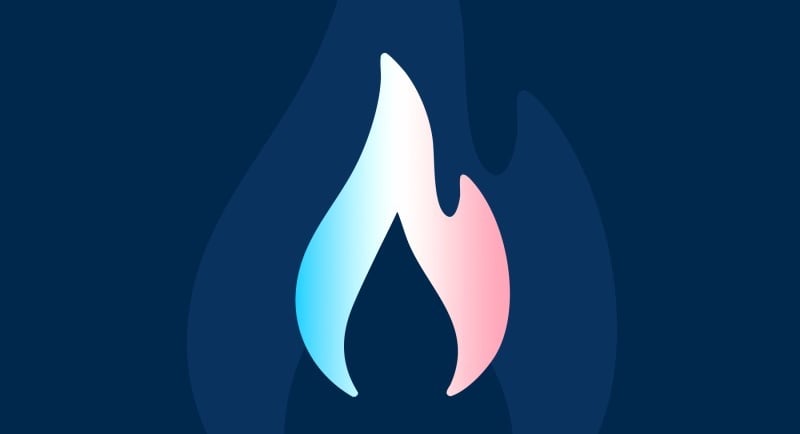Transgender Day of Remembrance 2024: Honoring Lives Lost and Celebrating Resilience
11/20/20245 min read


TDOR 2024, not a happy day to celebrate...
Introduction to Transgender Day of Remembrance
Transgender Day of Remembrance (TDOR) is an annual observance held on November 20, dedicated to honoring the memory of individuals who have lost their lives as a result of anti-transgender violence and discrimination. Established in 1999 by transgender activist Gwendolyn Ann Smith, TDOR emerged as a response to the brutal murder of Rita Hester, a transgender woman, and represents a collective effort to raise awareness of the violence faced by the transgender community. This day serves as not only a memorial but also a stark reminder of the ongoing issues surrounding transphobia.
The primary purpose of TDOR is to commemorate those individuals whose lives were taken prematurely due to transphobia and societal hatred, highlighting the urgent need for increased awareness and advocacy. As part of the observance, vigils and ceremonies are organized worldwide, uniting communities to reflect on the lives lost and the struggles endured by transgender individuals. Participants share personal stories, read the names of those killed, and engage in various forms of artistic expression to honor their memories.
The significance of this day transcends mere remembrance; it compels society to confront the systemic inequality, violence, and discrimination that continue to impact transgender individuals globally. TDOR provides an essential platform through which members of the transgender community can voice their experiences, educate others, and advocate for change. It encourages both awareness and action, reminding all that each life lost due to transphobia matters. As such, Transgender Day of Remembrance invites everyone to stand in solidarity against anti-trans violence and work collectively towards a future where every individual can live authentically and safely, irrespective of their gender identity.
Acknowledging the systemic issues that contribute to the violence faced by transgender individuals is a significant aspect of TDOR. The commemoration draws attention to factors such as lack of access to healthcare, socio-economic disparities, and pervasive discrimination that exacerbate vulnerability within the community. By confronting these issues head-on, the remembrance of lives lost becomes a call to action, urging society to implement policies and practices that ensure safety, equality, and respect. The importance of commemorating TDOR lies not only in honoring those who have been lost but also in reinforcing a commitment to a future where all individuals, regardless of gender identity, can live without fear of violence or retribution.
Transgender individuals continue to face alarming levels of violence, a reality starkly reflected in recent statistics. According to the Human Rights Campaign (HRC), 2023 marked one of the most deadly years on record for transgender people in the United States, with at least 45 known fatalities resulting from violence. This figure points to a disturbing trend that underscores systemic issues related to discrimination and hate. The data reveals a significant intersectionality, particularly affecting transgender individuals of color, who disproportionately bear the brunt of this violence.
Reports indicate that Black transgender women are especially vulnerable, with many facing not only physical assaults but also harassment and discrimination in various aspects of their lives. For instance, a study published by the National Center for Transgender Equality indicated that 47% of transgender individuals reported being sexually assaulted at some point in their lives. This statistic highlights the pervasive nature of violence against this demographic, exacerbated by socio-economic factors and societal stigmas.
The landscape of violence is also influenced by various regional dynamics. Areas with fewer legal protections for LGBTQ+ individuals often experience higher rates of hate crimes and violence targeting transgender individuals. Notably, recent FBI data demonstrated a rise in hate crimes against the transgender population, underscoring the need for enhanced reporting, legislation, and community support to mitigate such violence.
Moreover, research indicates substantial disparities regarding access to healthcare and services, compounding the threats faced by transgender individuals, particularly those living in poverty. These barriers often lead to increased vulnerability, making certain groups within the transgender community more susceptible to violence. Addressing these disparities is crucial in forming a comprehensive approach to combat and prevent violence against transgender people, fostering a safer environment for all.
‘I speak from my heart,’ he answered them, ‘whatever you did for the least important of my fellow human beings who needed help, you did for me.’
Then The Chief will say to the goats on his left, ‘Go away from me, you who have bad hearts, into the fire that burns everything up, made for the evil trickster snake and his messengers.
For when I was hungry, you gave me nothing to eat. When I was thirsty, you gave me no drink,
and when I was a stranger, you turned me away. When I needed clothes, you gave me nothing to wear, and when I was sick and in prison, you failed to visit me.
Mat 25:40-43 FNVNT
What the world is now, it seems dark right now, hold onto hope, Hold onto each other, NEVER LET GO.
In Matthew 25, Jesus emphasized the profound connection between our treatment of others and our relationship with Him, stating that what is done to the least of these is done unto Him. This teaching resonantly echoes in today's society as we observe the increasing hatred and attacks against transgender children. Such actions reveal not just individual character flaws but a broader moral failing. When society turns against its most vulnerable members, it highlights a troubling disconnect from the compassion and kindness that Jesus advocated. Instead of embracing love and acceptance, these harmful attitudes indicate a moral compass skewed away from empathy and understanding. As we navigate these challenging times, it is essential to reflect on our actions and ensure they align with the values of dignity and respect for all individuals, especially those who are often marginalized.
The ongoing legislative changes seem overwhelmingly focused on children, reflecting a troubling aspect of our society's moral compass. Many people have voiced their concerns about this trend, suggesting that it reveals a broader issue regarding how we value the most vulnerable among us. Personally, I've always had an inner drive to keep fighting against adversity, but I recognize that not everyone possesses this core strength. When individuals or groups choose to target marginalized communities — particularly those who are already struggling — it starkly demonstrates a lack of empathy and moral clarity. This pattern of behavior raises serious questions about our collective values and the direction in which we are headed as a society. It is essential to advocate for the protection and support of the most vulnerable, as they deserve to be heard and valued, rather than attacked or overlooked.
I have written about my own struggles, and as I process them, I see the world as only getting worse. I also seen allies that have become some of the strongest friends I thought I might never have.
I encourage you, click on any of the links below:
Lives shattered, broken too soon, before their time. Let us look at the pieces and learn to do better.....


























